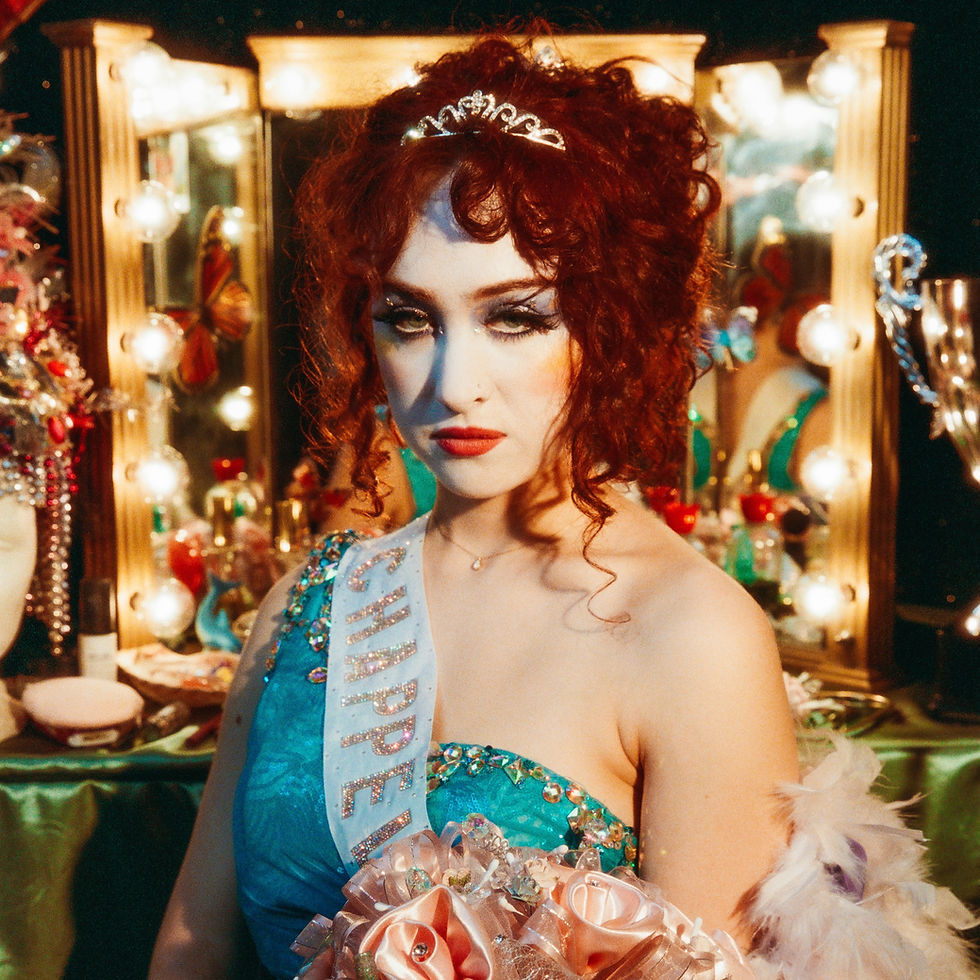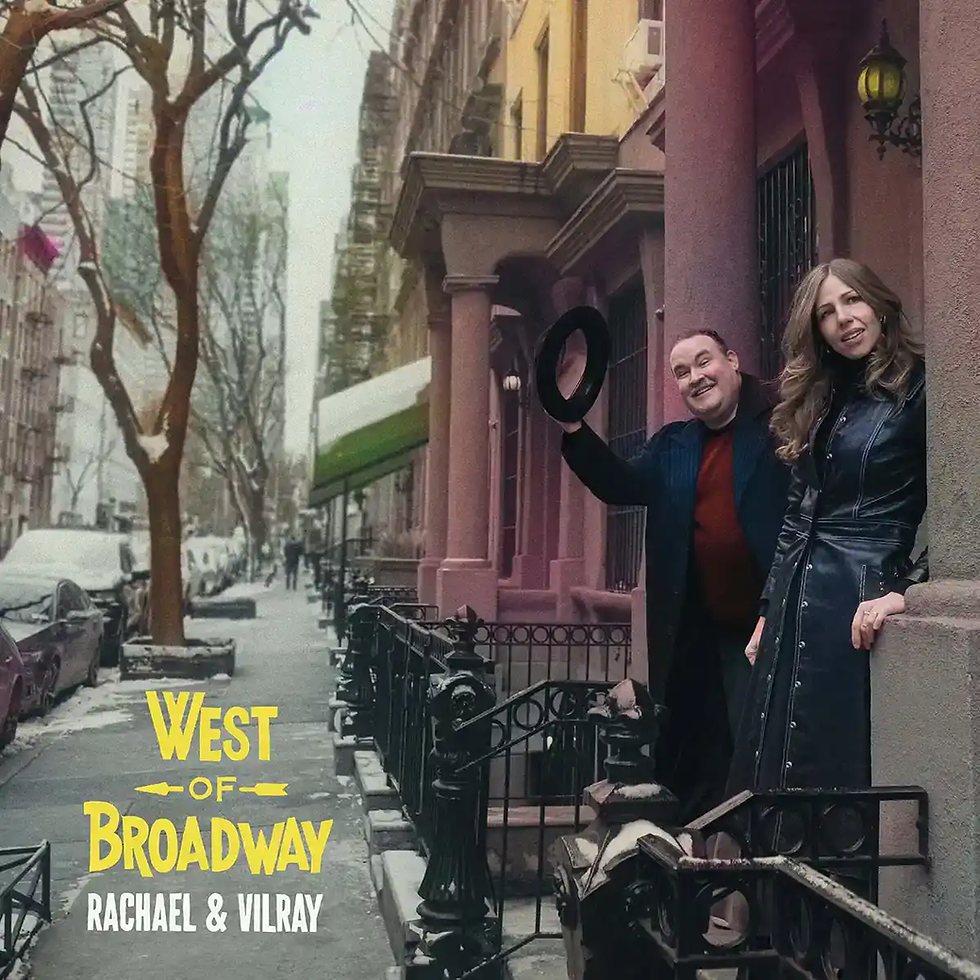Chappell Roan: The Rise and Fall of a Midwest Princess
- Pandora's Vinyl

- Jul 23, 2025
- 2 min read
The Rise and Fall of a Midwest Princess, Chappell Roan's debut album, is more a glitter coded celebration of queer selfhood and euphoria, an exorcism of small-town restrictions than it is a compilation of songs. The album's 2023 release went unnoticed until it became an unexpected sensation, a femininominon you could say, in the same vein as Born This Way, depicting the modern queer experience by fusing universal longing with personal catharsis.

Roan, born Kayleigh Rose Amstutz, channels her journey from Missouri’s Bible Belt to West Hollywood’s gay bars into a sonic odyssey that’s equal parts campy liberation and raw vulnerability while also serving as a commentary on notions like modern dating and heartbreak.
The album's title, an homage to David Bowie's Ziggy Stardust, captures Roan's drag-inspired alter image as a "Midwest Princess" discarding her modesty for rhinestone, sequins and unabashed statements of want. Pink Pony Club and Naked in Manhattan pulse with the urgency of someone discovering freedom for the first time; their synthy choruses and witty lyrics act as rallying calls for gay listeners.
Though there is grit beneath these disco balls and glitter. Coffee exposes the loneliness of solitary adolescence, while Casual analyses the pain of unrequited love over eerie piano chords. These tensions are grounded by Roan's voice, a multifaceted instrument that can switch between vulnerable falsettos and yodelling confidence, giving the impression that pain is a ritual that everyone performs.
What cements Midwest Princess as a queer classic is its cultural resonance. Roan’s rise from industry dropout to Olivia Rodrigo’s tour opener and Coachella standout parallels the album’s narrative of resilience. Tracks like opener Femininomenon and My Kink Is Karma have become TikTok staples, their lyrics weaponised by Gen Z as both shield and manifesto. The album’s Grammy nods, including Best New Artist, further signal a shifting zeitgeist where queer stories no longer niche, but necessary.
In an era of sanitised, belaboured pop, Chappell Roan insists on messiness. She’s the friend who drags you to the club post-heartbreak, smudged eyeliner and all, reminding you that healing isn’t pretty, it’s fabulous.
By Anish Paranjape
The Entertainment Department




Comments